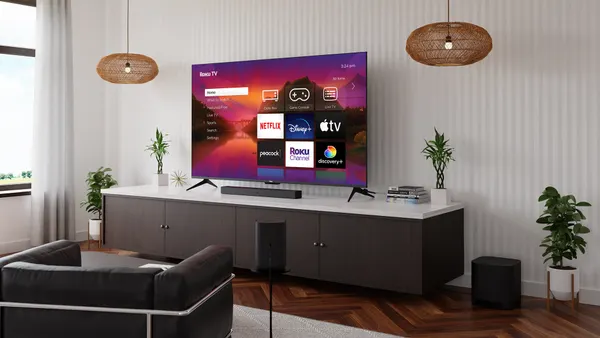Dive Brief:
- Hyundai has a new digital showroom on Amazon that includes price comparisons, reviews, vehicle details, test drive bookings, the ability to check dealership inventories and other Shopper Assurance elements through Amazon Vehicles, the automaker said in a news release. For the first time, users can click through directly from Amazon.com to Hyundai's website.
- The digital showroom lets consumers access Hyundai's website directly to find a local dealer, streamline purchase options, see pricing and learn about the company’s exchange program.
- When users first land on the digital showroom, they will see a "brand experience" page highlighting Hyundai's technology and automotive innovation.
Dive Insight:
By setting up a digital showroom on Amazon, Hyundai continues to aim for a leadership role in modernizing and digitizing the car-buying experience. The carmaker’s partnership with the e-commerce giant aims to simplify shopping for a vehicle by providing pricing, test-drive scheduling, vehicle specs and dealership information all in one place. The effort could have a strong appeal with tech-savvy millennials, who are buying fewer cars than older generations and prefer to do most of their shopping online.
The new showroom is part of the automaker’s strategy to boost its digital capabilities to appeal to younger consumers, including a recent partnership with Xevo on the Hyundai Blue Link to offer in-vehicle payments for consumers using their car’s infotainment screen. Drivers will be able to pay for coffee, gas and parking without having to pull out their smartphones. Hyundai previously partnered with Amazon in 2016 on its on-demand test-drive program, called “Prime Now, Drive Now,” that allowed prospective buyers to schedule test drives through Amazon Prime Now. The automaker was also the first mainstream car brand to connect vehicles with homes using Amazon Echo and the Blue Link skill for Amazon Alexa.
Hyundai’s partnership with Amazon is in line with auto industry predictions that 10% of vehicle transactions will be online by 2019. Consumers continue to look for convenience in their shopping experiences, but the vehicle-buying process at dealerships can be time-consuming and confusing, and consumers often distrust car salespeople. Fifty-three percent of U.S. consumers said they would be likely to buy a car fully online, and 59% expect dealership sites to offer this capability, according to a study by marketing firm Root & Associates cited in a Washington Post report. Automakers and car dealerships that invest in their e-commerce offerings could gain a competitive edge over the competition.
Auto buying sites have been investing in emerging technology to streamline the shopping and purchasing process. Cars.com recently unveiled a machine learning algorithm that analyzes vehicle supply and pricing data to identify vehicles that are most likely to sell quickly. Initial testing of the tool led to double-digit increases in conversion and was particularly strong on mobile.










